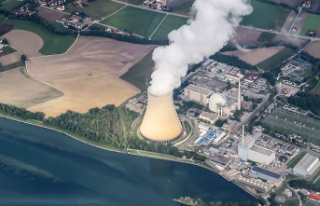The Prime Minister of Lower Saxony will soon have to pass a state election. While the unsuccessful gas surcharge still makes heads spin at traffic lights, Weil presents an idea for a slim gas price cap: According to this, the state and consumers should share the cost increases in half.
Even before the agreement was reached in the federal government, Lower Saxony's Prime Minister Stephan Weil presented his own model for a gas price brake. A week and a half before the state elections in Lower Saxony, the SPD politician pushed for a quick solution. "It's overdue," Weil told the Süddeutsche Zeitung. The model developed with State Energy Minister Olaf Lies therefore provides that the consumption of the previous year is taken as the basis for the calculations, since this is fixed for all consumers.
According to the report, half of the price increase should be borne by the state, the other half should be borne by consumers, who can then reduce their share by making savings themselves. "The model rewards those who save more energy," said Lies. The prime minister added: "It's the first model where practitioners say it can work." The two SPD politicians saw a point in the fact that their plan could be flexibly adjusted at any time. "The advantage of our model is that it also works when gas prices change," said Lies. The amount of the bonus, which the state takes over, would then be changed depending on price developments.
The aim of the model is to "present a workable proposal that people will immediately benefit from," Weil said. Because instead of waiting months for subsequent state subsidies, the energy suppliers should immediately pass on the state bonus to consumers. "The energy suppliers can include this immediately in advance payments," Lies told the newspaper. Weil wants to bring his proposal to the prime ministers' conference with the chancellor's office, which has been postponed to next Tuesday.
According to the report, Weil and Lies had their proposal checked by energy suppliers and, according to their own statements, received positive feedback from them. "The practitioners in the energy industry say yes, we can implement that quickly," said Weil. It is important for people that state aid reaches them as quickly and unbureaucratically as possible. "We need to become simpler and easier to understand," Weil said.
Even with this model, however, the decisive question remains as to how the state share, which is worth billions, is to be financed. "Of course, at the end of the day, the state has to take responsibility," Weil said. This will not be possible without additional debt. "I think it's impossible to finance this without additional loans," said the SPD politician. He pleaded for a renewed easing of the debt brake, which Federal Finance Minister Christian Lindner and his FDP have so far strictly rejected.












